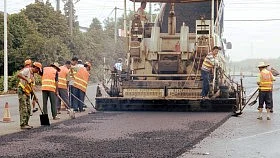The SC judgment convicting Prashant Bhushan of criminal contempt has given an impression that the courts are intolerant and cannot take criticism sportingly, said Justice (retd.) Satyaranjan Dharmadhikari of the Bombay High Court. The judge further opined that the top court could have waited for some time, at least till physical hearings could be resumed, before convicting the senior advocate.
In a conversation with The Free Press Journal, Justice Dharmadhikari spoke on the issues around the Contempt of Courts Act, with special reference to the Prashant Bhushan case.
The former judge said the Contempt Of Courts Act has been in place for the last 69 years now and has not infringed on free speech. "This law has stood the test (by courts) and has been relevant and nowhere does it infringe on free speech. The law allows fair criticism but not scandalising a judge, the court or the institution as the whole. If one criticises within the framework of law, there can be no action against him or her."
"Just because of one case or judgment (Bhushan's case) one cannot say that the Contempt of Court Act is against free speech. There are lakhs of contempt cases pending in various courts, as this law is used very rarely," Justice Dharmadhikari said, pointing out that there are so many cases wherein people escape contempt proceedings due to the "large hearts and magnanimity of the judges".
The judge, who had himself had authored the judgment convicting and sentencing journalist-turned-activist Ketan Tirodkar for criminal contempt, explained, the law is invoked only when there is an attempt to scandalise or obstruct the administration of justice. He however, said that people put to notice for contempt of court, are usually discharged after they apologise for their misconduct.
Citing various SC judgments on contempt of court, the judge pointed out that those were exceptional" cases wherein the courts had concluded that the conduct of the contemnor had scandalised the institution or had obstructed the administration of justice.
Speaking about the alleged "objectionable" tweets of Bhushan, Justice Dharmadhikari said that tweets or social media posts are also under the purview of this law. But he questioned if a mere two tweets could have scandalised the SC.
"The judgment in this case (Bhushan's) concludes that an attempt is made to lower the authority or the court. It does not mention if these tweets scandalised the institution as such," Justice Dharmadhikari pointed out.
"Thus, a question arises, as to how could two tweets lower the court's authority? How have the tweets led people or lakhs of litigants to lose faith in the judiciary? Is Mr Bhushan so powerful that his tweets could have destabilised the institution?" the judge questioned.
The judge further said that it was the duty of the top court to satisfy itself that the tweets had scandalised the institution itself. He said that these tweets did not lower the authority of the court.
"The faith and confidence of the public was not shattered or affected adversely by these tweets. I think very strong material and evidence is required to convict someone of criminal contempt. Those were clearly absent in this (Bhushan's) case. This judgment has not stood by the tests of settled law on contempt of court," Justice Dharmadhikari said.
Explaining the intent behind using this law, Justice Dharmadhikari referred to the judgment rendered by ex-CJI Ranjan Gogoi in the TC Gupta vs Hariom Prakash case, wherein it was observed "Power to convict or punish must be exercised very rarely and where silence is not an option for the court."
The judge, accordingly, pointed out that in various judgments, courts have convicted contemnors for contempt when their conduct was "gross."
"The long line of decisions of the SC, wherein the powers were exercised to uphold the majesty of the law, that quality, statesmanship etc have been confused now by this judgment. Judges have to take criticism in stride, be kind and large-hearted," he said, adding that in majority of contempt cases, the judges have convicted contemnors not to teach them a lesson or to show might.
"They (the judges) convicted people out of anguish and pain. But such a feeling is not there in Prashant Bhushan's judgment, which gives an impression that the courts have become intolerant. They cannot take it sportingly and are giving too much importance to every criticism," Justice Dharmadhikari opined.
Can 2 tweets lower a court's authority?: Justice (retd.) Satyaranjan Dharmadhikari of Bombay HC
Narsi BenwalUpdated: Monday, August 31, 2020, 02:50 AM IST

RECENT STORIES
'Advocates Cannot Get Away With Anything': Bombay High Court On Lawyers Seeking Exemption From IPC...

Bombay HC Refuses To Intervene In Vadhavan Port Development Plan

COVID-19 Body Bag Scam: Bombay HC Gives Nod To Pre-Arrest Bail Of Ex-Mayor Kishori Pednekar

Concretisation Of Mumbai Roads: Contract Delays Further Prolong Key BMC Plan

Bombay HC Metro 3 Panel Asks MMRCL To Show Bonafides Over Tree Cover


